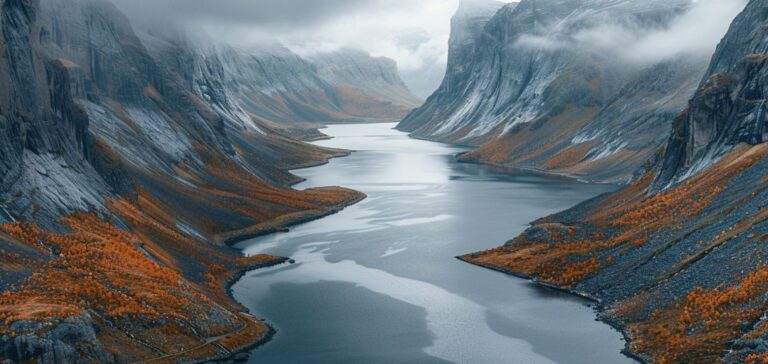The results of Greenland’s legislative elections on March 11, 2025, marked a significant shift for the island’s economic and energy future. The Demokraatit party, supporting progressive independence from Denmark, secured around 30% of the vote and is now engaged in negotiations to form a coalition government. Among the party’s key priorities are the acceleration of foreign investment, diversification of Greenland’s economy, and increased support for the mining sector, essential for reducing the country’s reliance on Danish subsidies.
Trump’s annexation rejected and Greenland’s sovereignty reaffirmed
Donald Trump’s ambitions regarding the annexation of Greenland have encountered strong opposition from both the Greenlandic government and population. Since 2019, Trump has expressed interest in acquiring the territory, a proposal strongly rejected by Denmark, and more recently by Greenland itself. In January 2025, Trump’s son, Donald Trump Jr., visited Nuuk, Greenland’s capital, distributing MAGA hats, further escalating tensions.
A survey conducted in January 2025 indicated that 85% of Greenlanders oppose annexation by the United States. Only 6% are in favor, and nearly 45% perceive Trump’s intentions as a threat to their autonomy and sovereignty. The Danish government reaffirmed its commitment to respecting international law and protecting Greenland’s sovereignty, a fundamental principle underlying Denmark’s foreign policy.
A new government supportive of the mining sector
The victory of Demokraatit also signals a significant policy shift for Greenland’s mining sector. Previously, the government had enforced strict regulations to limit the environmental impact of mining, hindering foreign investment. However, Jens-Frederik Nielsen, Demokraatit’s leader and likely next Prime Minister, has emphasized the need to simplify these regulations to attract more investments into mining while maintaining environmental protection.
Greenland, rich in strategic minerals such as rare earth elements, copper, and graphite, represents significant potential for the global energy industry. The Amitsoq project, developed by GreenRoc Mining, exemplifies this potential. The project, focused on producing high-quality graphite used in batteries and other critical energy-transition technologies, could benefit from the support of a government more favorable to foreign investment. Stefan Bernstein, CEO of GreenRoc Mining, expressed confidence that regulatory changes could enable projects like Amitsoq to advance in a more stable and predictable environment.
Strategic mining resources essential for the energy transition
Greenland holds substantial reserves of strategic minerals crucial for technologies linked to the global energy transition, including lithium-ion batteries, solar panels, and wind turbines. Rare earth elements such as neodymium and dysprosium are vital for manufacturing magnets used in electric motors and wind turbines. These materials are increasingly indispensable as global demand for renewable energy and electric mobility grows.
Exploiting these resources could enable Greenland to position itself as a major player in the global critical minerals market. However, despite the island’s significant mineral wealth, exploitation remains limited due to inadequate infrastructure and stringent environmental regulations, delaying numerous mining projects.
The necessity of a balanced approach to local tensions
While increased investment in the mining sector is crucial for Greenland’s economic future, it does not come without challenges. The country faces internal tensions, notably opposition from local communities toward mining projects, particularly those located near residential areas or sensitive environments. Although support for mining is growing, especially among younger generations, environmental and social concerns remain significant obstacles.
The Greenlandic government will thus need to balance mining development with local environmental protection, addressing community expectations. Effective management of these social tensions is essential to ensuring the long-term viability of mining projects and equitable distribution of economic benefits to the entire population.
Geopolitical and environmental implications of resource exploitation
The exploitation of Greenland’s natural resources also raises critical geopolitical issues. The Arctic region has become strategically important due to emerging maritime routes resulting from climate change and increased access to natural resources. Greenland’s attractiveness to global powers, particularly the United States, China, and Russia, intensifies these geopolitical tensions. Positioned centrally in these rivalries, Greenland must navigate external pressures while preserving its autonomy and maximizing benefits from its resources.
Additionally, environmental concerns regarding mining in the Arctic—a particularly vulnerable region—continue to provoke debate. The Greenlandic government must reconcile economic imperatives with preserving fragile ecosystems, managing international stakeholders’ expectations, including mining companies, and ensuring compliance with strict environmental standards.






















